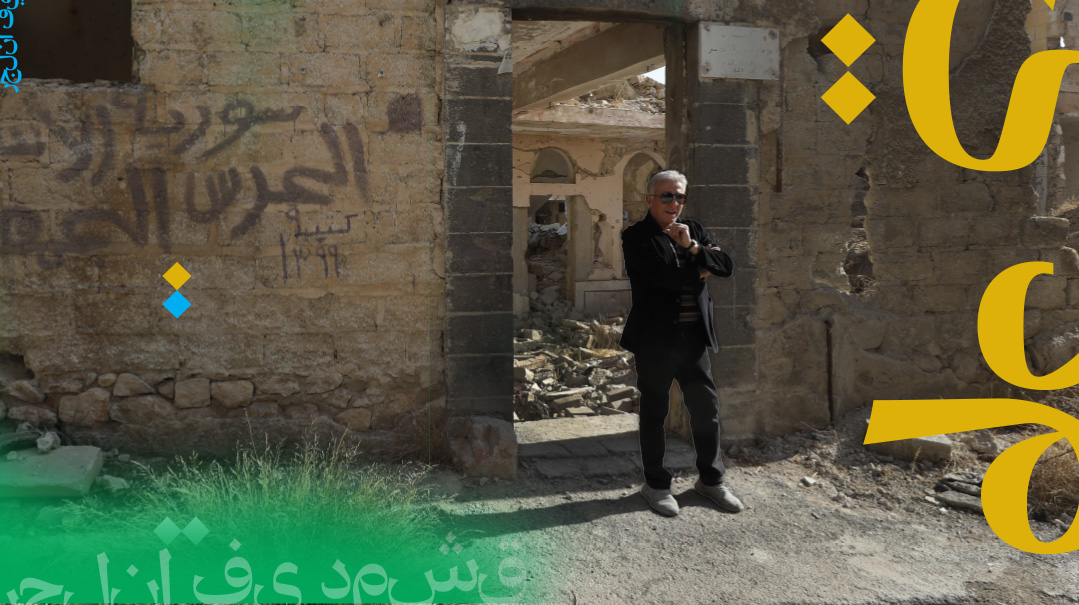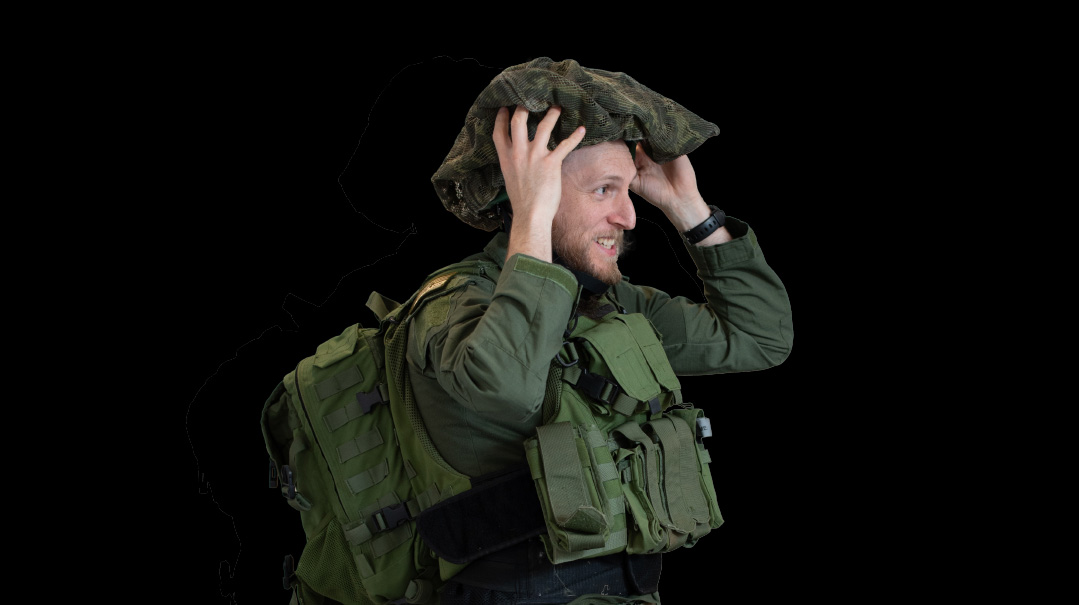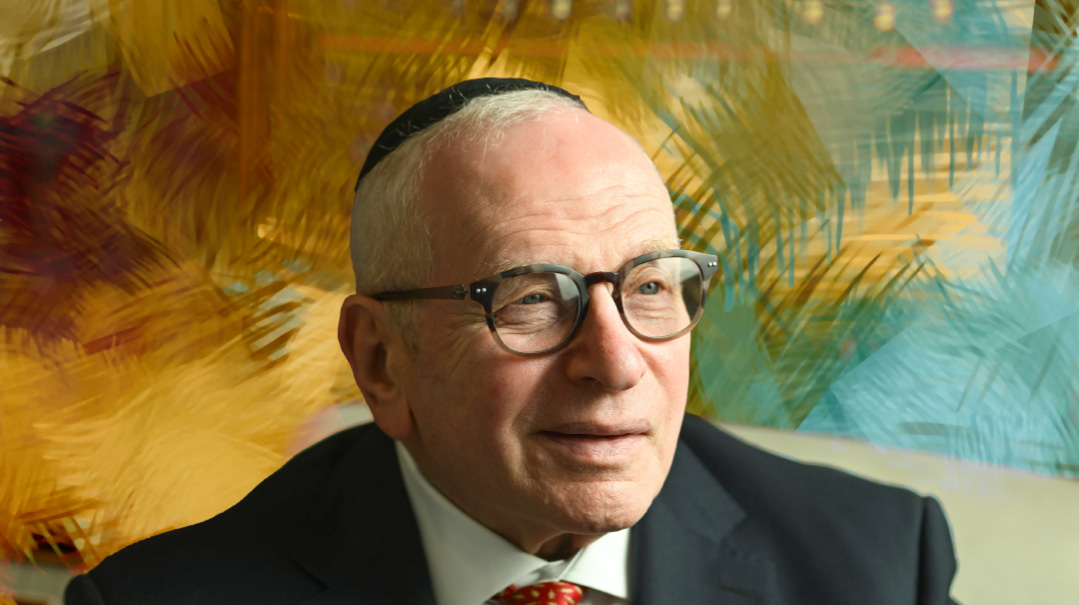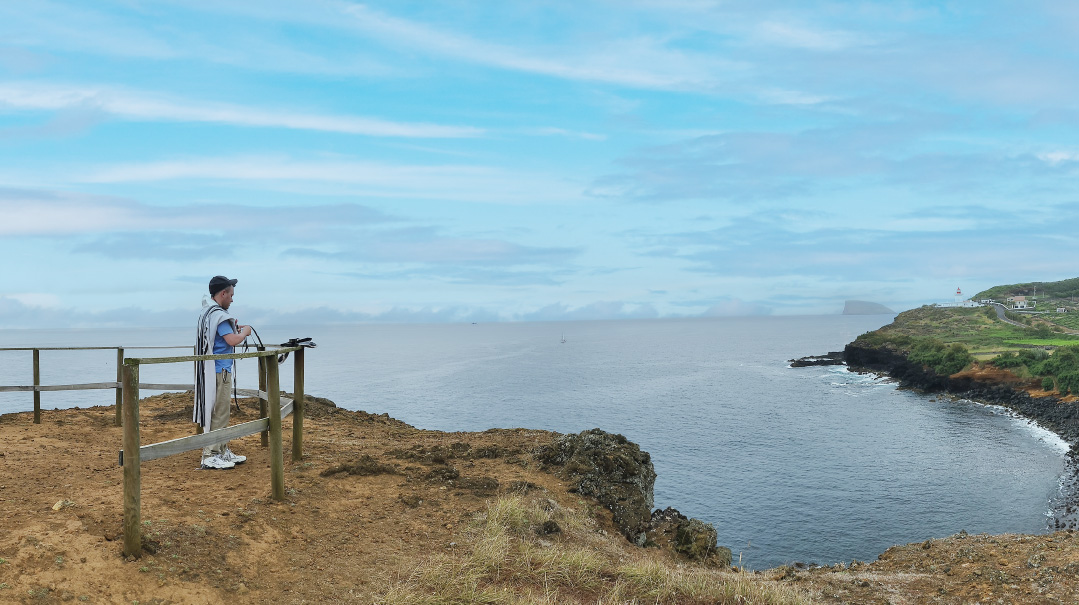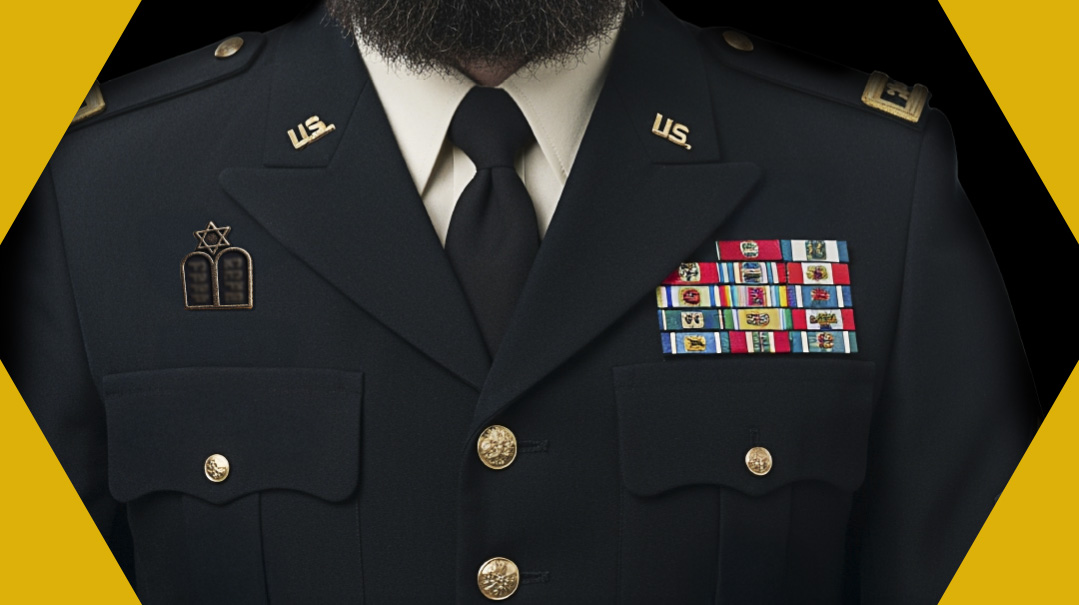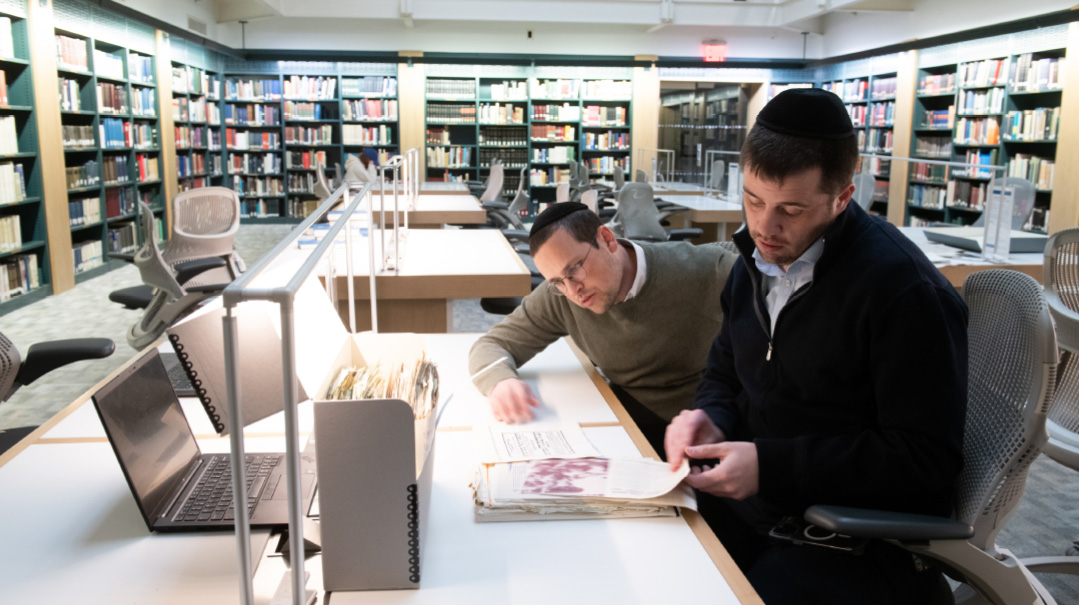Tales of a Wandering Jew

As a frequent-flyer shochet to far-flung places, Rabbi Yechiel Shmuel Fried learned to never underestimate the capacity of a Jewish heart
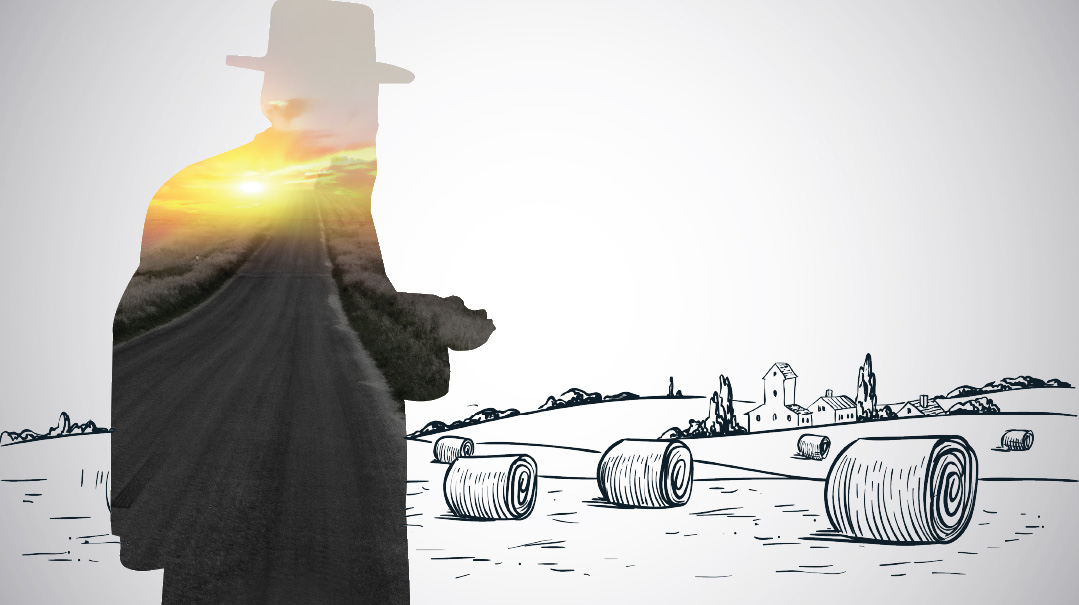
As told to Rivka Streicher by her grandfather Rabbi Yechiel Shmuel Fried
There are two things that make me the writer and storyteller I am. That I traveled maybe ten times as much as the average person. And that my eyes were open.
I inherited a curiosity of spirit from my father. He gave it to me, and he honed it. Open eyes, open ears — he was an opportunist and an idealist if there ever was one. When I was five years old, he’d take me two hours on the bus so we could hear a Selichos by a certain chassidic court, a Maariv one night of Chanukah there. He’d hold my hand in the great split-second stillness after the Rebbe’s brachah, before the rumbling “amen” of the crowd. “Do you hear? Do you get it?” he asked me. Sixty-five years later, I remember the way my heart beat faster, how my voice joined and carried with a thousand others.
We were seekers, looking and learning. Extroverts, connecting easily with people, with places. We knew family networks, this one’s grandfather from der heim, that one’s cousin. Mishpachology was a language I learned at the knee. But I didn’t know how far it would go, the places I’d get to, the people I’d meet…
In the early ‘70s, I learned to become a shochet. I had a young family, and I stayed close to home. For eight years I worked in beef and poultry plants around New York and New Jersey.
At the time, a gargantuan food company dominated the market. They had hundreds of supermarkets across America and sourced most of the products they sold. They owned miles of farmland and a host of factories, including 60 slaughterhouses. We worked in one in New Jersey that produced kosher meat, though obviously not exclusively kosher, as the hind quarters and those animals that hadn’t been shechted right were sold as nonkosher.
When we turned up to work on Tzom Gedalyah of 1980, the police were swarming around the place. The colossus had gone bankrupt in a chain of debt that had claimed supermarkets and factories one by one. Now this huge slaughterhouse had fallen. The police were guarding the place so that the building and its machinery could be taken as collateral. We’d come to shecht but the gig was up — as had been decreed the day before, on Rosh Hashanah.
There was a meat crisis that Yom Tov. For a few weeks there was no kosher meat in New York. Then the kashrus authorities went further afield and I started getting other contracts. I started to travel. First Rochester, NY, then Pittsburgh, PA. For a while I was in Ohio, and then I started covering other states — Wisconsin, Chicago, Iowa, Los Angeles, Nebraska.
As always, I kept my eyes open. I met people, Jews, brothers, stories,“Traveling tends to magnify all human emotions,” says Peter Hoeg. When the exchanges are fleeting, when you’re 50,000 feet closer to heaven, hurtling through the clouds in a small metal beast, things take on significance.
I traveled only intermittently while my children were growing up, but when they were older and some of them married, I was often on the plane twice a week.
I collected experiences, collected stories, came home and regaled my family. I used them in the shiurim I give, and in the columns I wrote for a chassidish paper. “Stories out of heaven,” my daughter would say.
What’s Your Bottom Line?
1972, Upstate New York
A hot summer’s day. I’m standing at the back door of the poultry slaughterhouse, shechting chickens by the hundreds. This is upstate New York, the country, years before the camps and bungalow colonies color the area frum. No kosher supermarkets, not even a pop-up pizza shop. This is real country: hills and forest and farmland. And on one of those poultry farms, a kosher shlachthois — slaughtering and packaging inside and a small storefront outside.
I work out back in the lazy breeze, steady, and sure, while the sun climbs its arc in the sky.
I hear her before I see her.
“Shochet, Reb Shochet.”
The R is guttural, the accent old-world European.
The woman in front of me is all-American, middle-aged, and — it’s high afternoon now — scantily dressed.
I avert my gaze, but she continues in rich Yiddish. “Reb Shochet, gebensht zolt ir zein, ich vil kishen dein kleid — You should be blessed, I want to kiss your clothes.”
A fellow materializes beside her, her husband, panting and perspiring.
“Twenty-five years,” she says, staring at me, at the dead chickens, with wonder. “I haven’t eaten meat or poultry in 25 years.”
They lived in Albany, and she’d heard that this slaughterhouse had opened in the area. They came by hoping to see the shochet.
“I don’t eat the meat unless I see the shochet himself and I know it’s been kashered,” she explains.
She starts to lug crates of slaughtered chickens to the front. Her husband follows and pays for crate after crate.
They are packing the car with chickens, and I say, “It’s gevaldig, your dedication to kosher meat, but can you explain…?” I wave a hand at her, this non-tzniyusdig woman, the question hanging. To look like this, yet to care this much about kosher meat? Twenty-five years?
The woman puts a hand on her hip. “Have you heard of the Sanzer Tzaddik?”
I nod and shake my head at her apt pronunciation.
“I’m an echter Sanzer, I was born in Sanz. In der heim, in the butchers, they sold regular, treif meat, as well as kosher meat. My father never let us send the hired help to the butchers. He’d make my mother go, he’d make us girls go. And he pressed us each time: Was the shochet there? Did you see the shochet? Is this meat that the shochet koshered for you?”
“I see,” I say, “but frau-leben, vos punkt dos? What’s with Shabbos? What’s with tzniyus?”
She looks down, sighs a little. “It’s America… it’s a new world.” She says at last. “Look, back home, we were maybe as religious as you are. Tzniyus, Shabbos, those were things we did at home, things we did naturally. But kosher shechitah, that’s what my father insisted on. Like this.” She makes a fist, claps it into her palm.
We speak a little, about Sanz, about a world that was. About the contradiction of a lifestyle, kosher at meat-level but not on others. I hope the encounter does something for this woman full of zeal, full of old fire, but so Americanized, too. I watch the car, stacked with chickens, roll into the distance.
I go back inside, back to slaughtering, pensive. You can never judge, I think, you just never know. You see a couple that looks anything but religious and you just don’t know how deeply the erlichkeit runs… The Berdichever (that great meilitz yosher for Klal Yisrael) would have had a field day.
I think also about their chinuch. What her father put emphasis on 50 years ago. What her father insisted on. What she remembered, even through a war, over an ocean, even as everything else slowly, dropped away. Twenty-five years of abstaining.
What did I want my children to remember for 25 years? Through everything?
In later years, as a baal darshan, when I spoke of chinuch to young, eager fathers, tired, overworked fathers, I recalled this story. I didn’t know what had happened to the woman. I’d moved on from that slaughterhouse, never saw her again, but her story brought chinuch home.
I asked my audiences: What are you going to make your “kosher meat” point?
Revival Rabbi
1994, McKeesport, PA
For a good couple of years, we flew out to McKeesport, PA, another shochet and I, once a week, on Mondays.
We came at night, slept over in a hotel near Pittsburgh Airport, shechted early Tuesday morning, and were back in New York for Minchah by Tuesday afternoon.
It was a well-oiled routine, same evening flight, same hotel. We’d heard there was a pocket of Jewish presence in McKeesport, but we were on a tight schedule and didn’t have time to check it out. Early on, we’d made telephone contact with a local rabbi, Rabbi Yitzchak Irvin Chinn, and he let us use the mikveh that was close to our hotel in the morning. We were there at dawn before anyone else was, opening the door with a key that was left under a rock. Our relationship probably would’ve stayed at that if not for the one time — after maybe two years of weekly trips — that there was additional work at the slaughterhouse and we were going to stay for two days.
We needed a minyan for Minchah and Maariv on Tuesday, and we thought it should’ve been easy enough to find. But looking in the phonebook revealed nothing. A smattering of churches, a mosque, but no listing for a synagogue.
This was in the 1990s, before the widespread use of Google, and we were left to try our luck with a listing in the book that went under “Temple.”
We made our way and sure enough there was a sign, “Temple B’nai Israel.” Why the full name wasn’t in the White Pages was anyone’s guess.
Inside, people were coming and going. This wasn’t only a temple; there were Jewish education classes for adults taking place, three classes at a time, a guy told us.
So much interest in Judaism, miles from any established community?
“Come meet the rabbi,” said the young man.
Rabbi Chinn was upstairs in an old office, beaming up from a well-thumbed rolodex.
“So you’re the men who take the key,” he said.
We admitted as much and thanked him. But the pleasure was all his, and he started showing us around the place.
“You see this rolodex? It has the addresses and phone numbers of members of the new community.”
There had once been a strong community on the other side of the river, he explained, but it had mostly gone under, when the original members had died out, their children moving away or intermarrying.
Rabbi Chinn was singlehandedly bringing it back. He’d acquired the shul and rebuilt the mikveh. The rolodex was his joy. Two-hundred-eighty addresses, 280 families that now considered themselves part of the new community, 280 families who kept taharas hamishpachah thanks to Rabbi Chinn.
And all in his way, bighearted and unassuming. He’d specifically called the place a temple when he registered it, because he felt that sounded less intimidating. And the people were coming, the education classes downstairs were going strong.
I shook my head, started to cry. This was unbelievable, an impossible dream. Reinstating Yiddishkeit where it had once flourished. A man who cherished his rolodex, his role.
He took us upstairs to the shul to daven.
He told us that Rabbi Moshe Feinstein and Rabbi Yaakov Kamenetzky had been involved in the arrangement of the mechitzah; they’d planned the architecture that it should be just kosher, not overdone, not too much to daunt a fledgling community.
“You wouldn’t like it,” he said, a laugh in his voice, pointing to the American and Israeli flags waving from the bimah.
I was still tearing. Of course we liked it, how could we not?
On the way home, I sat on the plane, thinking about this giant of a man and the huge-scale kiruv in an unlikely location.
I looked up, still pensive, my heart open from the encounter, and I saw the guy sitting next to me.
“Hey, brother,” I found myself saying.
“Brother?”
“Yes, you’re Jewish, aren’t you?”
He nodded slowly. Apparently, he was studying in a university where there were only two Jews on campus and no one else knew. “How did you know?”
I told him my standard line, “I can see on your nose,” and got a laugh out of him.
We got to talking. He told me he lived in Pittsburgh and had recently married a woman he’d met at university. She wasn’t Jewish, but they didn’t let that come between them. She’d done a Reform conversion, which he thought was good enough. His new wife though, felt she was living a farce; she hadn’t learned anything, wasn’t keeping anything, she’d done a ceremony that meant nothing.
She was an intense sort, a person who took life seriously. She felt stupid about the Reform conversion and wanted to do it properly, but he didn’t know where to turn.
I turned to him, incredulous, “Wouldn’t you know it? I’ve been coming here for over two years, and I only just this week met the rabbi and saw what he does. I know exactly where to send you…”
Strapped In
2012, NJ Turnpike
Mordechai , a Lubavitcher chassid, and I would make our way up north every Sunday. He was in New Jersey, I in New York, and since I don’t drive, my son-in-law would drive me to a certain rest area near Passaic where the Chabadnik would pick me up, and together we would continue on to Baltimore . It was a bustling rest area, a pivotal stop on the New Jersey Turnpike, with stores and eateries and hundreds of parked cars.
Until it wasn’t. In October of 2012 Hurricane Sandy struck, and the building was left flooded and waterlogged, the parking lot in shambles. Still it was the best place to meet Mordechai, so somewhat worriedly, my son-in-law dropped me off there a few weeks post Sandy. Mordechai showed up and off we went.
We did our thing and a few days later we were back. My son-in-law was going to pick me up from that rest-area-that-was, but he called to say he’d be delayed by half an hour.
Mordechai wasn’t going to leave me in that desolate place alone. He parked in the rubble and I took out my Rabbeinu Tam tefillin. I hadn’t yet had a chance to put them on that day.
I’m standing there, donning my tefillin, against a destroyed landscape. The place looks G-d forsaken, the debris of stores all around, deathly silent where it had been hopping with people only weeks ago. Suddenly a young man streaks out of a car and rushes over to me. Wild hair, ripped jeans, punky, strange. He points at my arm. “Tefillin,” he says.
What? This guy hardly looked like a person, much less a Jew.
And strange still, he bursts out, “Haven’t put these on since… Rabbi, please, will you put them on for me?”
I start to wind the straps round his arm, feel the goosebumps form on his hand. He starts to close his eyes and pray. I look at him, swaying, of course he’s a person. Of course he’s a Jew.
When he’s done, he asks me, “What are you doing here?”
Fair question, there’s no gas station, no stores, nothing.
“What are you doing here?” I counter.
He holds out his arms. “I have no idea, no idea.” He’s shaking and shaking his head. “I was driving along the freeway and just like that, this exhaustion came over me. I just took the first exit I saw. I’ve been sleeping in my car for what?” he looks at his watch. “Two hours. And you guys must have woken me.”
We look at each other, the most unlikely of pairs, standing together, holding onto the same pair of tefillin, in a parking lot that is ravaged but not forsaken .
My son-in-law pulls up then, half an hour late, not like him.
I shake the young guy’s hand and lead him over to Mordechai’s car.
“You’re the Chabadnik, but looks like I’m the shaliach,” I tell Mordechai.
We laugh, but Mordechai’s on it. He takes the guy’s number, pulls out a card.
We get into our respective cars and pull away and my son-in-law starts to apologize for being late.
I wave away his apology. “Have I got a story for you….”
It’s All in a Name
2020, Decorah, Iowa
Miles from anywhere. A shechitah plant on an endless, rolling farm. Decorah is so far flung and out of the way that the flights from New York don’t deign to come by. It has its own little hopper airport for small connecting flights.
Every so often, I come by this remote place to do shechitah. The manager of the plant, Chezy (Yechezkel), is a friend.
On a dreary COVID day, stuck indoors for weeks, I receive a phone call.
It’s Chezy from the shechitah plant. This couldn’t be about work, no one was going anywhere. I hadn’t left my home in months to go to shul, let alone to take a cross-country flight.
No, it’s not work; Chezy wants to recount a tale.
There was a Kiddush last week Shabbos, in a shul in Hicktown, Chicago, some five hours from Decorah, Iowa. A man who’s very loosely affiliated celebrated the birth of a baby daughter.
They held the ceremony, and the guy announced the name: Decorah.
“Deborah, you mean?” the other men asked him.
“No, no,” he smiled. “Decorah. Like the airport in Iowa.”
“You’re naming the baby for an airport?”
“Yes,” he said simply. “About a year ago, I happened to travel from Decorah airport, and I met an angel at the gate.
“I was waiting at the gate, and an older man, a chassid, who was sitting there, was davening Shacharit and putting on tefillin. I asked him if he was a rabbi; we got to talking. The man was insistent that I put on tefillin. So I did. There was something about it. Amid flight announcements and coffee, a stranger’s pair of tefillin drawing me back to the first and only time I had ever put on tefillin — at my bar mitzvah.
He told me to pray. To ride on the moment and think about my deepest wish. People were milling about us, the first boarding call was announced, but I closed my eyes and thought how much we’d love to have a child. We were hoping to start a family, Hannah and I, and it had been some time…
When I finished praying, I told the chassid of my wish. He took my hand and blessed me. We both boarded the flight and I lost sight of him. I got on with my business and he got on with his — the business of blessings apparently. For wouldn’t you know it, shortly afterward, we found out we were going to be parents. That’s why we’re calling her Decorah. For the blessing I received at Decorah Airport.”
I gasp and Chezky continues…That’s what he told his congregation on Shabbos, over schnapps and herring. They refrained from telling him that Sarah, Rivka, Rachel, or Leah might be a better choice. If he wanted a Decorah, that was his prerogative. But the Chabad shaliach in that Chicago shul called me after Shabbos, because he reckoned that the chassid had been one of the shochtim near Decorah. So, I wanted to tell you about it to ask you if you might know which of the men it was…
Eleven hundred miles away, I tear up, then start to chuckle into the phone. Chasdei Hashem! I’d been that shochet!
I’d all but forgotten about the incident that happened a year prior. It was just another morning. Just something I did. I often come earlier to the airport so I can daven on the ground before the flight. I’d had the chance to put tefillin on for a Yid a good few times. I doubted I’d even told anyone about that encounter with the Jew in Decorah.
“Sometimes, you get a glimpse,” I tell my family, at a long, summer shalosh seudos. “But it’s not about me. It’s about that unaffiliated Jew and what happens for him and his family. Mostly I’m hoping that once day, a little girl with a strange name will want to know why…”
Border Line
2020, Toronto, Canada
On a recent Motzaei Shabbos, I’m sitting with my family, the remnants of shalosh seudos around us, when the phone rings.
“Rabbi Fried? My name is Rabbi G., I’m a rosh yeshivah in a yeshivah in Montreal. I’m calling to find out if you can help us again .”
“What?” I don’t know who Rabbi G is, and I haven’t heard of his yeshivah.
“You mean John hasn’t called you?”
“John?”
“Yeah, John O’brian from Toronto Pearson Airport. You know, the guy at border control. The night shift manager. Your friend.”
I have to laugh. I know who he’s talking about. I doubt I know his name’s O’brian.
He was there every Monday night when I came off the flight from NY, a vaguely familiar face I saw here and there at border control.
We tended to exchange a few words each time. How are you? Good to see you. Platitudes, nothing special, but a rite of passage of sorts each week.
Until the time he was there to meet me with a small smile and shake of his head.
“Sorry sir, we need to discuss what you’re doing here.”
He knew I had a contract in Canada, that I came every week. I had a visa, everything was in order.
Apparently not.
“You need a Canadian work permit.”
“Whatever for?”
I was working for an American company and earning the money in America. But according to John, because it was a Canadian slaughterhouse, they saw it as me taking the job away from Canadian rabbis. At the very least I’d need a Canadian work permit.
A colleague of mine had just been put through the same process. It was slightly illogical, but there wasn’t anything we could do. I knew it had taken him ages until he’d gotten the visa. He’d lost 11 weeks of work.
That night, I couldn’t get through border control. They sent me back until I could procure the visa.
I remembered his smile as I left. For all our positive encounters, there was this sense that he’d upped me.
Before I boarded the flight back, I called to discuss the matter with the Skverer Rebbe.
“Der matzav iz shvartz,” I said.
Straightaway, the Rebbe answered “Der matzav is schvartz? Nein, nein, se’s veis.”
I had just gotten back home, when I got the call. It was an official from the Canadian government. The permit was ready, I could pick it up at the border in Toronto Pearson.
The Rebbe had said, “veis.”
Just 24 hours later, John was there to greet me again. He looked at me with a bemused expression and spread out his hands. “They never issue permits so quickly. I don’t know how you did it.”
He chatted a bit, asked about my family, told me about his. His gregariousness was clearly compensatory. Cleary, he was uncomfortable as he was the one who’d alerted the authorities and put me through the bother of the visa. It all seemed a bit silly, the show of sending me home, now that the permit had come through in a matter of hours.
Week after week, from then on, he’d be there to greet me and chat. I humored him, and we developed a relationship of sorts.
Two years later, I left the job in Toronto. I hadn’t seen him in seven years, and I’d forgotten his name, though I could vividly recall him walking toward me, shaking his head, smiling slightly, the night he sent me back.
And now this rosh yeshivah was asking if I’d heard from John.
Turns out there were a handful of guys from New York in his Canadian yeshivah. When they came back to yeshivah after Succos, they ran into trouble. Due to COVID restrictions, they weren’t allowed into Canada as non-Canadians. They’d understood that as students it shouldn’t pose an issue, but the guys at border control wouldn’t let them through. They called the manager and sure enough, John rolled up.
“I knew a guy, chassidic like you, he’d come by here for years.” he told the bochurim, “We were friends. You know what, because of Rabbi Fried, I’ll let you in.”
Back on a cold night in 2013, I wondered why I had to be sent back. The Rebbe said “s’iz veis,” and indeed it was no more than a blip. But the real veis was now in 2020. John had remembered the unlikely friendship that had sprung up after the permit story, and he’d let those bochurim in.
“I’d like to think that I can get some of the zechus for the Torah they’re learning in yeshivah,” I told the Rosh Yeshivah.
He chuckled and said, “So John told the bochurim that you might have some special contacts, apparently some years ago you were able to get a work visa in a blink. There are several more bochurim from NewYork who want to get in to Canada. Can you tell us what you did then?”
If I had to choose a pasuk that encapsulates my experience, this would be it. “Trust in the Lord and do good; dwell in the land and be nourished by faith” (Tehillim 37:3)
Wherever I went, I tried to do my bit. And he nourished me, trip by trip, coast to coast, with faith.
(Originally featured in Mishpacha, Issue 860)
Oops! We could not locate your form.







